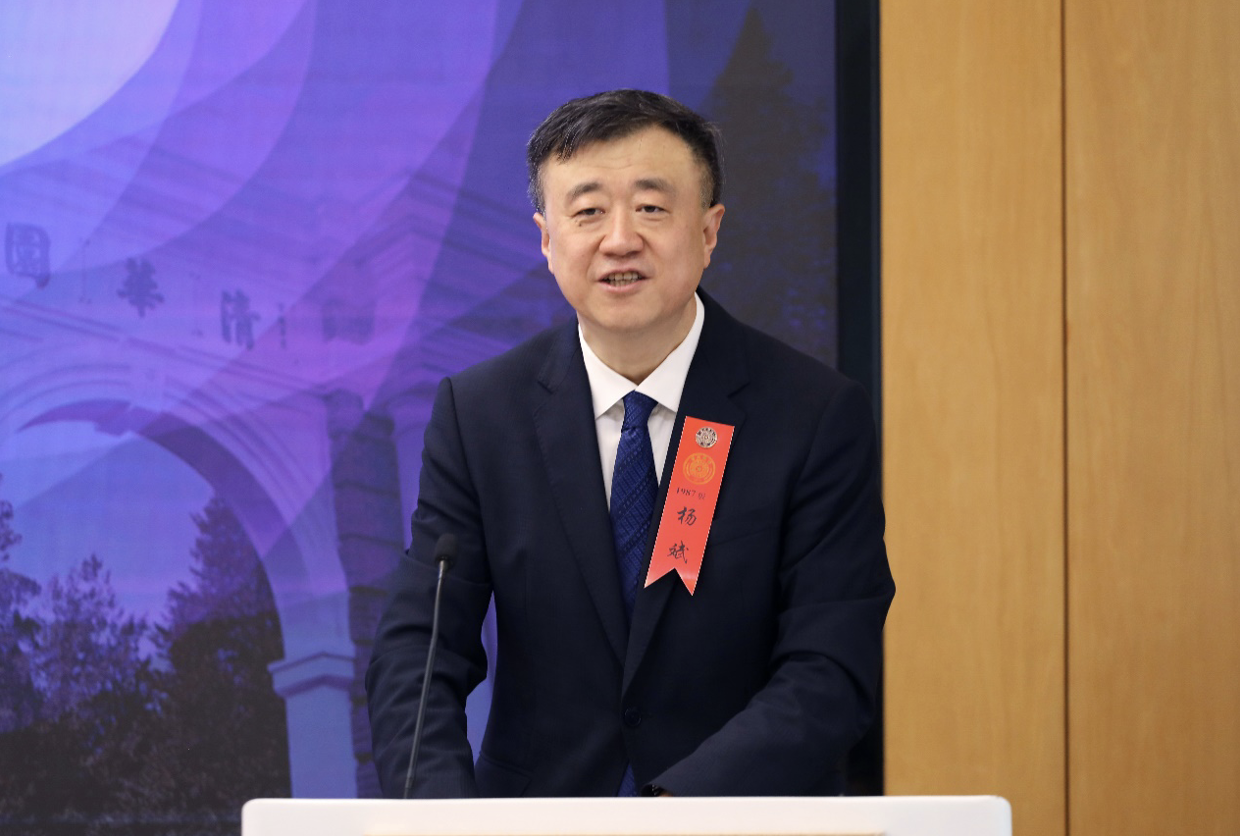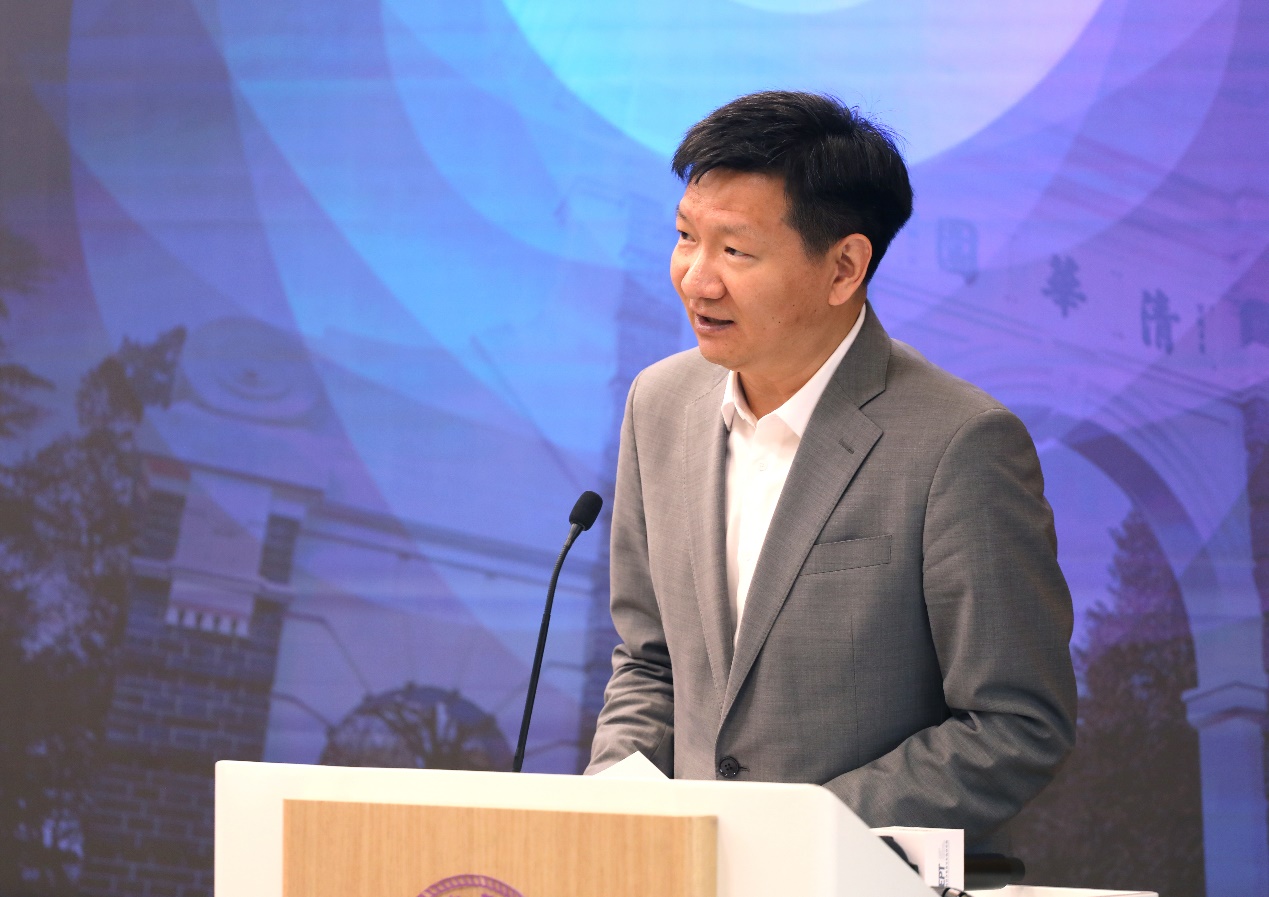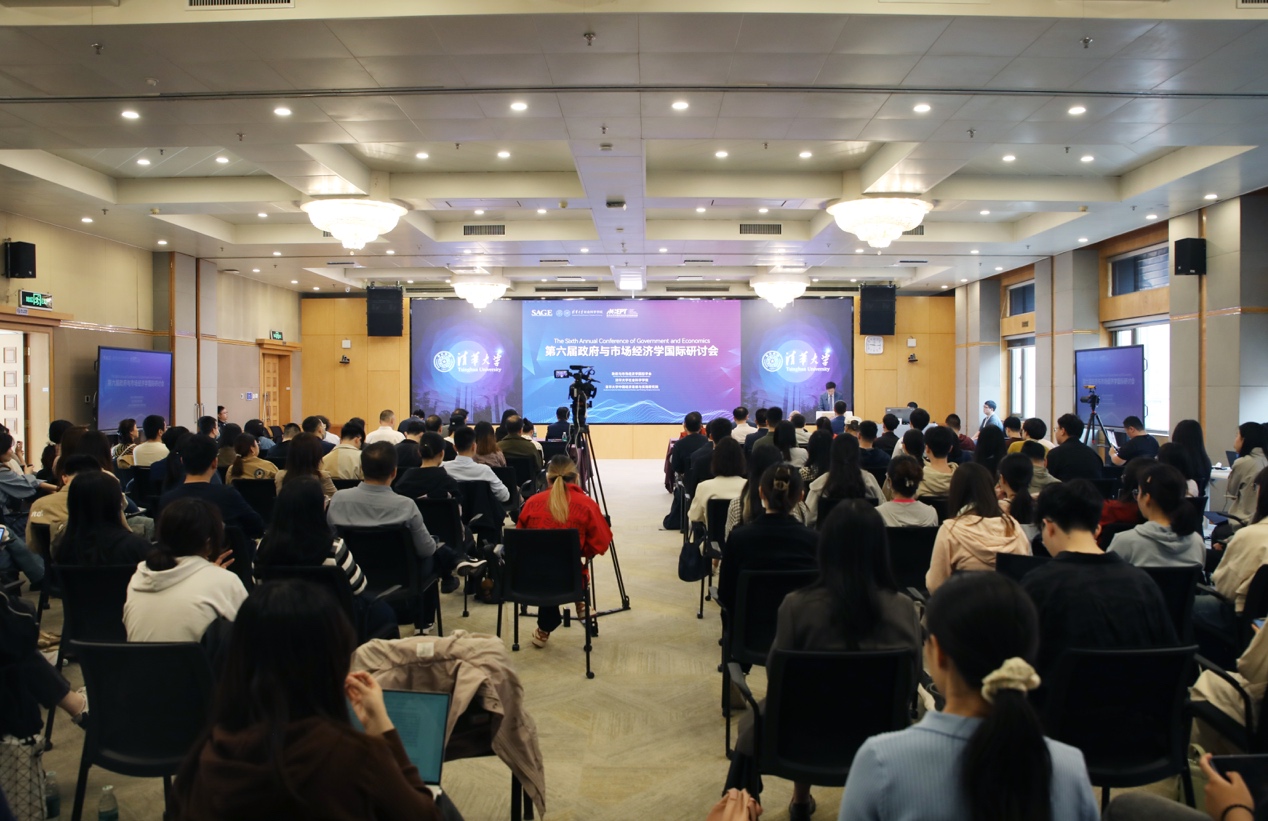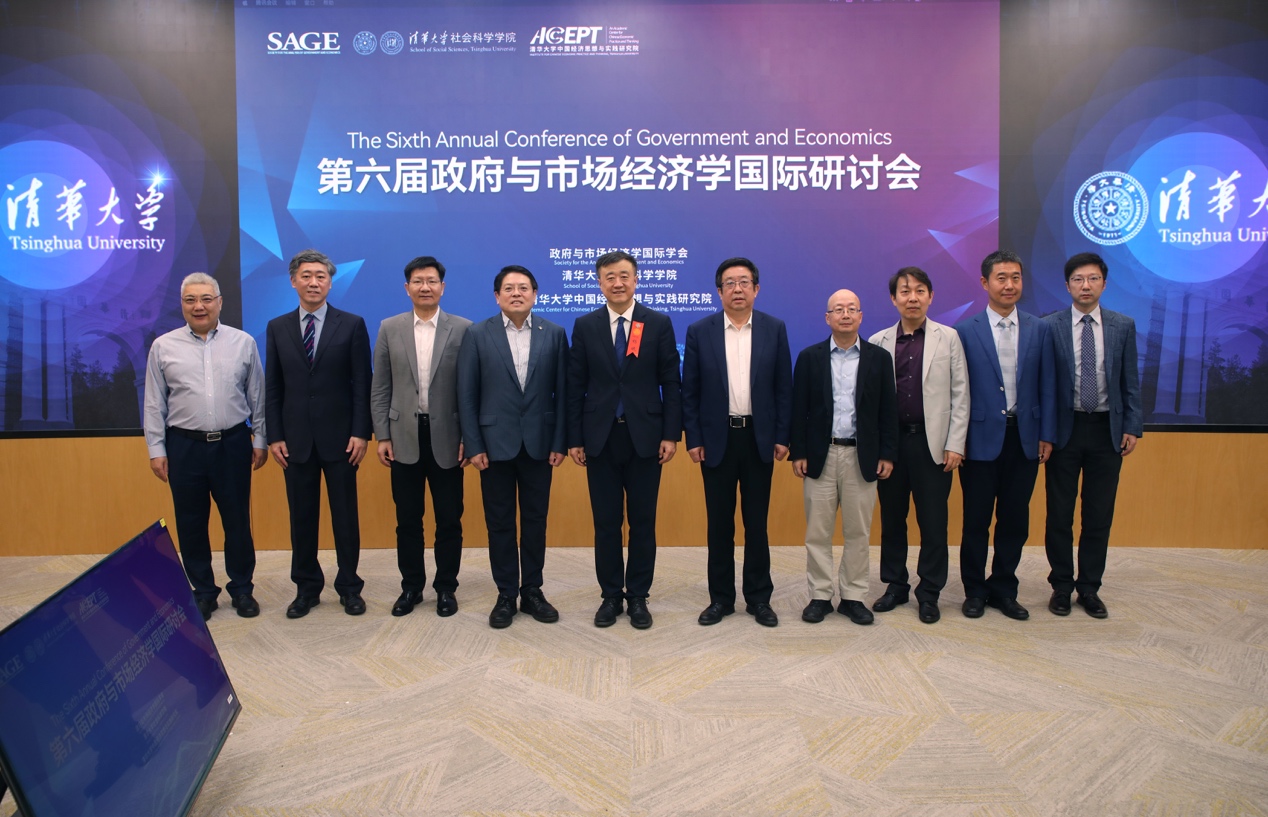On April 27, the Sixth Annual Conference of Government and Economics, co-hosted by the Society for the Analysis of Government and Economics (SAGE), and Tsinghua University's School of Social Sciences and Academic Center for Chinese Economic Practice and Thinking (ACCEPT), was held at Tsinghua University's Shunde Building. Tsinghua University's Vice President Yang Bin attended and addressed the conference.

Yang Bin address
Yang Bin noted that the faculty of economics at Tsinghua University has a long history, and has cultivated a number of talents in economics with both patriotism and international vision, making important contributions to China's economics education and economic and social development. In 2018, the university established the ACCEPT, which provides a high-level academic exchange platform for the summarization of relevant theoretical research and practice, and plays a key role in promoting the development of government and economics as a field of study. Yang hoped that ACCEPT will continue to leverage its advantages in basic research and coordinated development of disciplines, and contribute the strength of Tsinghua University and China to the development of economics globally.

Wang Tianfu address
Wang Tianfu, Dean of the School of Social Sciences at Tsinghua University, said that the School had organized a series of seminars in recent years to further explore ways of promoting the building of an independent knowledge system and accelerating the construction of the "Tsinghua school" of social sciences. One of the defining features of social sciences is its relevance to the evolution of the era, and an era of change is also a historic opportunity to build theoretical systems and promote the development of disciplines. Government and economics is an important part of China's independent knowledge system, and a feature of China's great social practice. It not only makes up for the existing theoretical gaps in economics, but also provides the latest insights on economics from China's development experience.
Present were Eric S. Maskin, 2007 Nobel Laureate in Economic Sciences, Adams University Professor at Harvard, and Co-President of SAGE; Jane Kabubo-Mariara, Professor at the University of Nairobi and Executive Director of the Partnership for Economic Policy (PEP); David Daokui Li, Co-President of SAGE and Director of ACCEPT; Ma Haitao, President of the Central University of Finance and Economics and Secretary-General of the Applied Economics Discipline Evaluation Group under the Academic Degree Committee of the State Council; Dong Zhiyong, Member of the Standing Committee of the Party Committee and Vice President of Peking University, Dean of the School of Economics at Peking University and Editor-in-Chief of Economic Science; Huang Xianhai, Vice President of Zhejiang University and Executive Director of the Research Center for Regional Coordinated Development at Zhejiang University; Zhou Li'an, Professor at the Guanghua School of Management and Director of the Faculty of Economics and Management of Peking University; Liu Peilin, Research Fellow at ACCEPT and Chief Economist of the Research Center for Regional Coordinated Development at Zhejiang University; and Huang Zhangkai, Associate Professor at the School of Economics and Management of Tsinghua University and Managing Editor of the Journal of Government and Economics. Li Keaobo, Executive Deputy Director of ACCEPT, presided over the conference.

Conference site
Scholars shared their valuables insights into hot academic issues such as soft budgetary constraints, fiscal and tax reforms, government-market gaming, motives of government interventions in economy, the "enabling government" theory, local government incentives, release of economic vitality and guidance of government planning in an in-depth and frank discussion.

Group photo